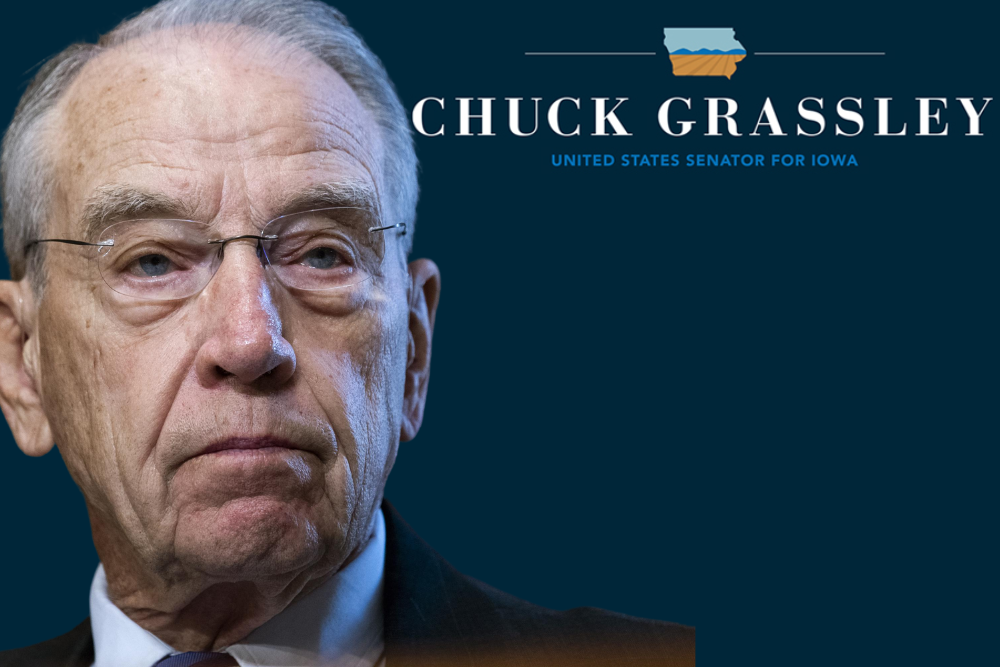Q: What’s your beef with the meatpacking industry in America?
A: For years I’ve been riding herd on anticompetitive practices in the livestock industry. Our independent producers are getting the short end of the stick in today’s marketplace. Only four meatpackers control 85 percent of the cattle slaughter. They often enter into hidden contracts with large feedlots. So, when smaller, independent producers have fat cattle ready for market, they become a residual supplier for the packers. The current system allows packers to fatten their profits at the expense of smaller beef producers and American consumers. Consider one of the meat giants, Tyson Foods, recently reported a 48 percent profit increase from last year. Another one, JBS recently settled a $52 million beef price-fixing lawsuit. The jig is up and I’m fighting tooth and nail to bring price discovery and transparency to these marketing arrangements to give independent cattle producers a fair shake so they can get a fair price for their high-quality beef. My bipartisan bills the Cattle Price Discovery and Transparency Act and the Meat and Poultry Special Investigator Act are gathering steam in the U.S. Senate. Lawmakers from Georgia to New York and New Mexico are co-sponsoring the bipartisan legislation I wrote with Sen. Deb Fischer of Nebraska, Jon Tester of Montana and Ron Wyden of Oregon to tackle anticompetitive practices in the beef industry. I know what we’re up against. The packers wield beefy influence in Washington, D.C. They initially butchered a mandatory price reporting bill I worked on years ago with then Sen. Tom Daschle from neighboring South Dakota. Eventually we prevailed and the Livestock Mandatory Reporting Act has been on the books since 1999 and everyone today accepts it is helpful. Now, the packers want to put my beefed up livestock marketing reforms on the chopping block. It’s an uphill battle, but we’ve got momentum on our side and I’ll continue bringing Iowa cattle producers’ voices to the table. I credit Sen. Debbie Stabenow and Sen. John Boozman for holding a hearing to examine our bill in the Senate Agriculture Committee.
Concentration in the packing industry controls the meat supply chain that brings beef, pork and poultry to kitchen tables across America. While consumers benefit from efficiency, they also expect quality product at affordable prices. The COVID-19 pandemic and a 2019 fire that destroyed a beef packing plant in Kansas exposed vulnerabilities in the food supply chain. These disruptions served as a wake-up call to strengthen competition and the need to restore a level playing field to help ensure fair prices across the board – from farm to fork. For two decades, we’ve seen vertical integration scale up and take control of how livestock is raised, marketed and processed in America. Alternative marketing arrangements have gutted negotiated cash purchases and undermine a way of life and generational family farming in America. At the Senate Agriculture Committee hearing in April, the USDA confirmed Iowa producers supply “very high” quality cattle. Iowa producers ought to rake in profits for producing high-quality beef, not get raked over the coals by the packers. As Iowa’s senior U.S. Senator, you can bet the farm I’ll keep working my tail off to get my bipartisan reforms across the finish line so that cattle farmers in Iowa can get a fair price for their high-quality beef. Family farmers get pennies on the dollar for what American families spend at the grocery store. Packers in the middle are putting the squeeze on the independent cattle producer and the American consumer.
Q: How important is the beef industry to Iowa?
A: Iowa has a proud heritage of cattle, conservation and land stewardship. From cattle feeders to cow-calf operators and dairy farmers, Iowa farm families produce high-quality, corn-fed, marbled beef that makes mouths water across the country and the entire world, especially as grilling season approaches. In February, the University of Nebraska published a report that showed 94% of cattle in the Iowa-Minnesota region grades over 80%. That makes cattle slaughtered in our state the best quality in the country. According to a 2017 study by Iowa State University (ISU), Iowa has the seventh largest cattle inventory in the U.S. and ranks fourth in the country for cattle and calves on feed. Our bountiful grain harvest, including dried distillers grains from ethanol production, ensures Iowa beef adds value to the state’s economy and vitality to our rural communities. According to the ISU study, our state has more than 28,000 cattle operations, including more than 19,000 farms with beef cows, more than 6,000 feedlots and 1,340 dairy farms. In 2016, Iowa’s beef industry generated an estimated $6.3 billion in economic activity. The lack of processing capacity in Iowa that started decades ago was exacerbated when COVID-19 disrupted food supply chains and sidelined members of the workforce. Efforts are underway in our state to add beef processing capacity. This is good news that will help address distortions and disruptions in the marketplace, boost farm income and increase competition. I’ll keep working at the policymaking tables to ensure our cattle producers can continue raising high-quality beef for generations to come that American families can enjoy at their kitchen tables at prices they can afford.
May is National Beef Month.
Original source can be found here


